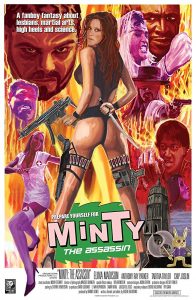 While at my folks’ for the weekend, I ended up diving into the free streaming service Dish Network has to offer, in search of the Maze Runner movies. Unsuccessfully, as it happened, but while plumbing the depths of the “action movies from 2010s” section (since they don’t seem to have a search function), I stumbled across Minty: The Assassin, which probably was a mistake.
While at my folks’ for the weekend, I ended up diving into the free streaming service Dish Network has to offer, in search of the Maze Runner movies. Unsuccessfully, as it happened, but while plumbing the depths of the “action movies from 2010s” section (since they don’t seem to have a search function), I stumbled across Minty: The Assassin, which probably was a mistake.
Minty (and the other characters) are comic book characters who exist in real life in the world that writes comics about them. This is not really a new idea; it pretty much lines up exactly with how Marvel has always run its comics division, for example. Anyway, after a series of really inexplicable vignettes in which we are introduced to Minty (her power is like Popeye, except she eats chocolate), her vampire potential girlfriend, and her mentor Big Boss, the meat of the movie begins when Big Boss is kidnapped by a psychic surgeon and used as bait to lure Minty to his tower. She fights her way up the tower past various colorful level bosses, losing bits of clothing as she goes, only to discover (okay, spoiler alert I guess, but seriously, don’t watch this) that it was all a set-up. The point of the kidnapping was to get her naked to the top of the tower, because Dr. Brain Bender is actually a creepazoid fan of her comic, and he wanted to see her with her clothes off.
Leaving aside the inherent contradiction of stripping her down in pursuit of an anti-sexism plot, the movie nevertheless had the germ of a good idea there. He’s clearly a bad guy, and he’s clearly a crazy loser, and you can at least imagine someone taking the message to heart. ….except that the final 15 minutes is exploitative in the extreme, of the characters and the audience alike. The fact that the bad guy gets assassined in the end really doesn’t make up for how sleazy the path to his death was.
Avoid.
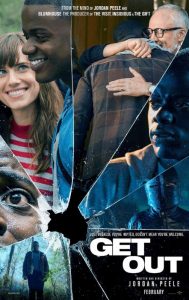 A year late, right? Summary, in case you’re as far behind the curve as I am: A mixed race 20-somethings couple visits the lady’s white family’s estate out in the boondocks (or, as you call it when you’re rich, “by the lake”), and the dude feels less comfortable / more out of place with every passing hour. Especially once the annual reunion gathering thingy kicks into gear. I wish I could say that the year of knowledge that
A year late, right? Summary, in case you’re as far behind the curve as I am: A mixed race 20-somethings couple visits the lady’s white family’s estate out in the boondocks (or, as you call it when you’re rich, “by the lake”), and the dude feels less comfortable / more out of place with every passing hour. Especially once the annual reunion gathering thingy kicks into gear. I wish I could say that the year of knowledge that 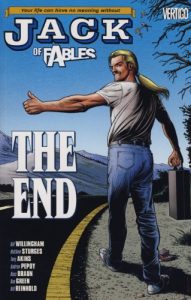 The final volume of Jack of Fables is hard to review for two reasons. If I’m being honest with myself, the series had outstayed its welcome since probably
The final volume of Jack of Fables is hard to review for two reasons. If I’m being honest with myself, the series had outstayed its welcome since probably 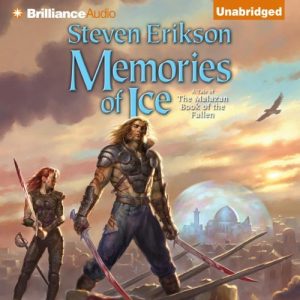 My original review of
My original review of 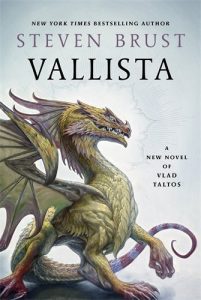 New Vlad book! Which you’ll know if you’re a long time reader here is kind of a big deal. You’ll also know that the series is coming towards an end[1], which explains why I can say very little. Basically, Vlad Taltos is an assassin, he’s made powerful enemies and powerful friends, and this particular book is more about the latter than the former. Worth knowing:
New Vlad book! Which you’ll know if you’re a long time reader here is kind of a big deal. You’ll also know that the series is coming towards an end[1], which explains why I can say very little. Basically, Vlad Taltos is an assassin, he’s made powerful enemies and powerful friends, and this particular book is more about the latter than the former. Worth knowing: 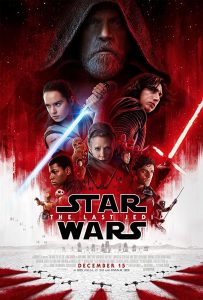 I’ve seen
I’ve seen 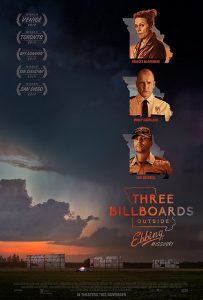 , which is about, well, honestly the title is not wrong, you know? You see, some amount of time has passed since Frances McDormand’s daughter was killed, and she is unhappy with the speed of justice, so she takes matters into her own hands via the powers of advertising!
, which is about, well, honestly the title is not wrong, you know? You see, some amount of time has passed since Frances McDormand’s daughter was killed, and she is unhappy with the speed of justice, so she takes matters into her own hands via the powers of advertising!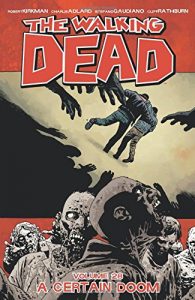 Remember that time when people were in danger from zombies instead of each other? I mean, you don’t, because that was like 15 books ago, and nobody but me has read anywhere near that far in the Walking Dead. The good news is, if you jumped back into the series with
Remember that time when people were in danger from zombies instead of each other? I mean, you don’t, because that was like 15 books ago, and nobody but me has read anywhere near that far in the Walking Dead. The good news is, if you jumped back into the series with 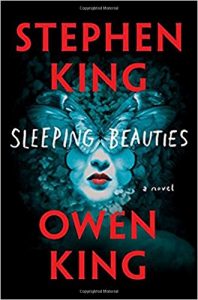 I have been reading the new Stephen King book for like two months, which is just strange. I mean, there were various reasons behind the delay. I’ve been really busy at work all the time, for one, and a shoulder injury made me loathe to carry it around, for another. (I mean, the injury was not entirely debilitating, and neither is this the biggest book ever printed, but the two factors did not play well together.) These are all true facts, but at the same time, I don’t think any of them was the real problem.
I have been reading the new Stephen King book for like two months, which is just strange. I mean, there were various reasons behind the delay. I’ve been really busy at work all the time, for one, and a shoulder injury made me loathe to carry it around, for another. (I mean, the injury was not entirely debilitating, and neither is this the biggest book ever printed, but the two factors did not play well together.) These are all true facts, but at the same time, I don’t think any of them was the real problem.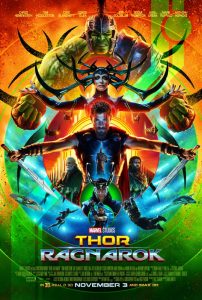 The problem with reviewing a new Marvel movie is the same as the problem with reviewing a new Dresden Files or Vlad Taltos book: too much accumulated past knowledge is required.That is, the only way to come close to getting a coherent thought out of me is if I assume you are aware of everything that has come before. Otherwise, I’m bound to spoil for previous movies.
The problem with reviewing a new Marvel movie is the same as the problem with reviewing a new Dresden Files or Vlad Taltos book: too much accumulated past knowledge is required.That is, the only way to come close to getting a coherent thought out of me is if I assume you are aware of everything that has come before. Otherwise, I’m bound to spoil for previous movies.